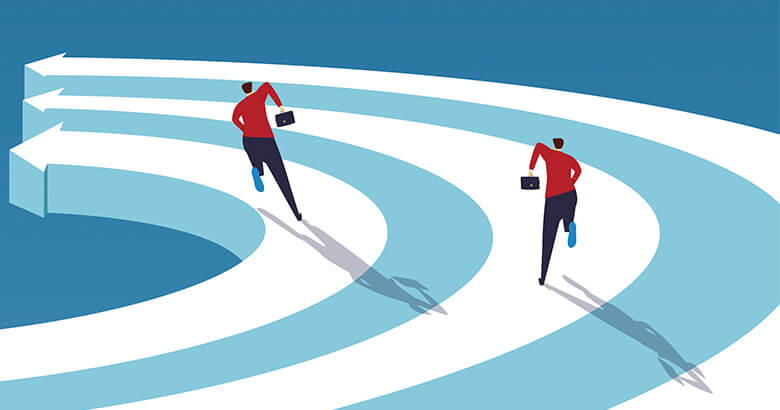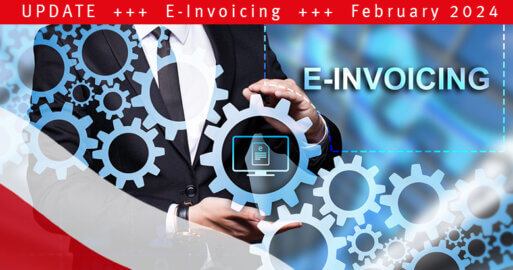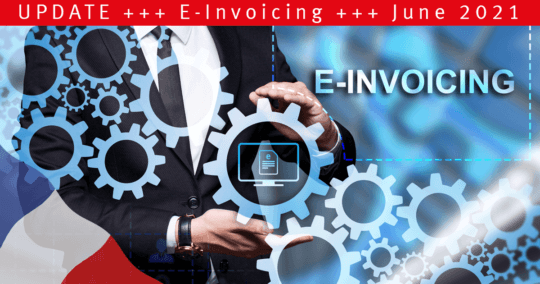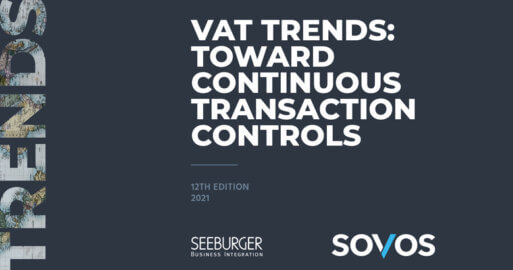France plans to extend the current B2G e-Invoicing mandate to B2B e-invoices until beginning of 2025

Has the race to mandatory business-to-business (B2B) e-invoicing in Europe just begun? Following Italy’s new B2B mandate, France now plans to extend the current business-to-government (B2G) e-invoicing mandate to B2B e-invoices until the beginning of 2025.
Article 56 of the Draft Finance Bill for 2020 stipulates the implementation of mandatory B2B e-invoicing between January 1st, 2023 and January 1st, 2025. By then, B2B invoices will have to be issued in electronic format, and – more importantly- the invoice data will need to be submitted to the administration for timely VAT monitoring and improved VAT controlling.
Mandatory B2B electronic Invoicing in France
While surely every government in Europe is still curiously observing the novelty of the B2B e-invoicing mandate in Italy, France just set the course to compulsory clearance of B2B e-invoicing within the next few years, as their government published the Draft Finance Bill for 2020 in September 2019.
Moreover, France is among the front-runners of an increasing number of governments that have recently adopted – or at least planned to introduce – mandatory e-invoicing in B2G and even B2B transactions.
In Europe, the Directive 2014/55/EU is establishing the necessity – and often the obligation – for suppliers to send invoices to the public administration in an EU compliant structured electronic format. Government exchange systems, which the majority of European countries have meanwhile implemented, allow suppliers to send e-invoices to public entities.
These exchange systems provide at least three main benefits for the respective government:
- The administration processes become more efficient through the digitalization of invoices and often other e-procurement processes, e.g. tender and order processes. This aspect is an important part of the digital agenda of the European member states, and even abroad.
- The tax authorities gain real-time information and control of invoices including VAT. In times, when European countries expected an annual VAT gap of more than 147 billion Euros for 2016, it became a clear objective of the households’ agendas to finance the state’s budget by collecting more VAT – rather sooner than later.
- Once mandatory B2G e-invoicing will be widely adopted by suppliers of the public administration, many suppliers will be enabled to send electronic invoices for B2B transactions, too. The available technical infrastructure thus eases the digitalization of the economy.
Suppliers enabled for e-invoicing on the one hand, and existing government e-invoice exchange systems on the other hand, are important success factors for making the use of e-invoicing for B2B transactions mandatory. Mandatory B2B e-invoicing via a governmental exchange system will improve the real-time monitoring and control of the VAT information for the government, and thus reduce VAT fraud and increase VAT collections, etc.
The details of the mandatory electronic invoicing system for B2B invoices in France have not been specified yet. By 1st September 2020, the government will have to submit a report defining the best way to consolidate technical, legal and operational solutions, which will not overburden the businesses but at the same time prevent VAT fraud effectively and efficiently.
Summary
Among the EU member states, France is one of the front-runners that will implement a governmental B2B e-invoicing mandate for timely monitoring and control of the VAT information. We see a trend in mandatory B2B e-invoicing in Europe led by Italy, followed by France and for instance Greece. Presumably, other EU countries will follow – just as e-invoicing has started and spread out throughout Latin America roughly within the past decade.
The challenge will be, to implement and operate all the different EU mandates,
- without having to individually manage and monitor many different local providers of all involved countries,
- being able to meet all the requirements of handling electronic inbound and outbound invoices and other data formats and communication channels,
- and providing an easy and reliable connection to the respective ERP systems at the same time.
The SEEBURGER BIS E-Invoicing Solution provides control of the processing of incoming and outgoing invoices as well as extensions for deep process integration with any ERP systems. We are your experienced cloud partner who understands and meets the various requirements of different countries in the EU and elsewhere with a single-source solution.
Read France’s June 2021 Update: CTCs in France: Update on French E-Invoicing and E-Reporting Mandate
Thank you for your message
We appreciate your interest in SEEBURGER
Get in contact with us:
Please enter details about your project in the message section so we can direct your inquiry to the right consultant.
Written by: Gerrit Onken
Gerrit Onken has been at SEEBURGER since 2010 as a product manager for software applications and for electronic data exchange services for the business sector. He focuses on solutions for SAP, electronic invoicing (e-invoicing) and innovations for digitalizing business and technical processes for globally-active customers. Originally a banker, Gerrit Onken went on to graduate in business administration, majoring in industrial management and business informatics. After working in the financial sector, he worked as a manager and project manager from 2004 to 2010 for one of the top five corporate consultancies, working with international BPOs in the banking and automotive industries.





